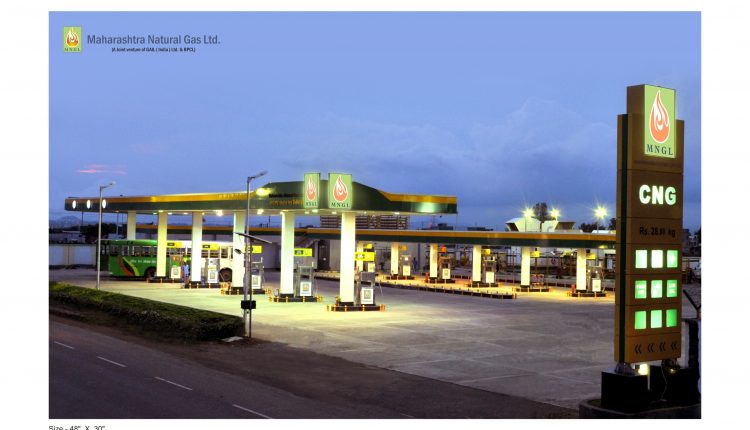CNG – The Cheapest and the Most Environment – Friendly ‘Green Fuel’
Pune (Voice News Service): Though there has been a slight increase in Compressed Natural Gas or CNG prices in the recent past, mainly owing to international trade and geo-political complexities, the demand for CNG – led vehicles is still increasing. One of the major reasons of increase in gas prices is Ukraine War leading to high demand in Europe, which is temporary in nature. CNG is attractive and a preferred alternative over fossil fuels like diesel or petrol because of its ‘economics’ and ‘environment-friendly’ characteristics.
For instance, in Pune geographical region where a major City Gas Distribution Company, Maharashtra Natural Gas Limited supplies CNG, the current price of CNG is Rs 92 per kg whereas the current prices of Petrol and Diesel are Rs 106.1 and 92.71 per liter; respectively. Still, CNG is the cheapest fuel and the most environment friendly.
Due to price effectiveness and better mileage, CNG offers attractive savings of around 45% and 24% as compared to petrol and diesel; respectively at current price levels in Pune city for passenger car segment and around 25% for Autorickshaws. The lesser CNG pricing is contributing into saving people’s monies without any additional burden on their pockets. On the ‘efficiency’ front, the CNG vehicles have a proven fuel – efficiency improvement of more than 30 per cent over petrol. This becomes all the more important for entry – level vehicles, as the fuel efficiency becomes decisive factor. For instance, a particular model of a car practically gives CNG fuel efficiency of over 26 km per kg over the petrol version giving about 16 km per liter. Thus, the running cost on CNG is around Rs 3.50 per km compared to approx. Rs 6.60 per km for a petrol variant and approx. Rs. 4.60 per Km for diesel. Thus, the extra money one spends initially for buying a CNG vehicle is thus recovered through further economies depending upon average daily running of the vehicle. Higher the vehicle running, lesser the payback period for recovery. Thus, the total cost of ownership of a CNG vehicle, be for personal or commercial use, becomes rewarding due to ‘savings and efficiency’.
The City Gas Distribution (CGD) sector in India aims to promote ‘Green Fuel’ such as Piped Natural Gas (PNG) for domestic, commercial and industrial consumption, and Compressed Natural Gas (CNG) for the automobile industry. The sector has witnessed remarkable growth in the past few years. One of the key objectives of the Government is to transform India into a gas-based economy. To make natural gas available to the public, the Government has been actively promoting the development of the CGD network. As on date, the Gas Regulator Petroleum & Natural Gas Regulatory Board (PNGRB) has authorized 295 Geographical Areas for development of CGD Network in the country, which shall cover 98% population and 88% geographical area of the country.
When auto-makers like Maruti Suzuki, Tata Motors, Hyundai Motors, etc are flooding the markets by CNG variants with factory – fitted CNG kits, the trend is clear that vehicles on CNG are gaining momentum and proving to be more economical alternative to the users. Amid surging petrol and diesel prices, CNG is becoming a preferred fuel option among others and many are rapidly switching to CNG vehicle models. As per the data in July 2022, in India, the ratio of CNG vehicles out of the total vehicle segment was 12 per cent and about 85 per cent of CNG vehicles are sold in the states of Maharashtra, Gujarat, Uttar Pradesh, Haryana and New Delhi.
On the technical side, a study shows that CNG is Greener and Cleaner, as the vehicles that run on CNG emit 80 per cent lower carbon monoxide and 45 per cent lesser hydrocarbons compared to fossil – fuels like petrol and diesel. According to Maharashtra Natural Gas Limited, a Pune – based city – gas distribution company, CNG is considered to be a cleaner fuel for the vehicle’s engine. Leaving a lesser residue, the CNG combustion also does not emit particulate matter, which enhances the lifespan of the engine. It is safer for the vehicles too, as being the gas, it disperses quickly as compared to diesel or petrol and hence, the chance of a fire hazard in CNG vehicle is lesser than petrol or diesel engines.
For environment – sensitive cities like Pune, Nashik, Bangalore, the vehicle – owners are finding CNG a better eco-friendly alternative. That is the reason why in Pune alone, the number of CNG vehicles is just rising. Currently, there are around three lakh fifty thousand CNG vehicles plying in Pune and surrounding regions, shows the data at Maharashtra Natural Gas Limited. Even the commercial vehicle segment running on CNG is also growing across the country. According to one estimate, it has grown by over 200 per cent in FY 2022.
The expanse of CNG stations or pumps is also rising to support the increasing number of vehicles. Currently, in India, there are about 4,500 CNG stations, which will go to about 10,000 by the year 2030. In Pune and nearby geographical areas like Pimpri, Chinchwad, Talegaon, Chakan, Hinjewadi, the Maharashtra Natural Gas Limited operates about over 100 CNG Stations and adding 1o more in a year’s span. In Nashik area, MNGL is supplying CNG to around 7000 vehicles through its network of around 20 CNG stations and adding 5 more to serve the citizens. With more number of CNG pumps becoming operational, the last – mile reach of this cost and environment effective ‘Green Fuel’ will increase in Pune, Nashik and other geographical areas as well.

